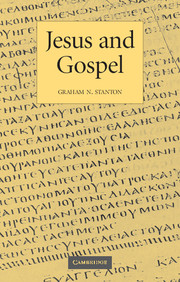Book contents
9 - What are the gospels? New evidence from papyri?
Published online by Cambridge University Press: 21 December 2009
Summary
In recent decades the question, ‘What are the gospels?’ has been discussed from three perspectives. I shall refer to two briefly, before concentrating on the third.
In discussion of this question, pride of place must always go the literary genre of the gospels. What kind of writings are we dealing with? Histories, religious novels, biographies, early Christian sermons in narrative dress, or catechetical handbooks? The very first step in the interpretation of any writing, whether ancient or modern, is to establish its literary genre. If we make a mistake about the literary genre of the gospels, interpretation will be skewed or even misguided. A decision about the genre of a work and the discovery of its meaning are inextricably inter-related; different types of text require different types of interpretation.
In this chapter I do not propose to consider yet again whether or not the gospels are biographies. I have had my say on that topic more than once. Following intensive recent discussion, broad agreement has been reached. The gospels are now widely considered to be a sub-set of the broad ancient literary genre of βίοι, biographies. Even if the evangelists were largely ignorant of the tradition of Greek and Roman βίοι, that is how the gospels were received and listened to in the first decades after their composition.
The question, ‘What are the gospels?’ has recently been given an unexpected answer: they were intended to be writings for all Christians.
- Type
- Chapter
- Information
- Jesus and Gospel , pp. 192 - 206Publisher: Cambridge University PressPrint publication year: 2004



